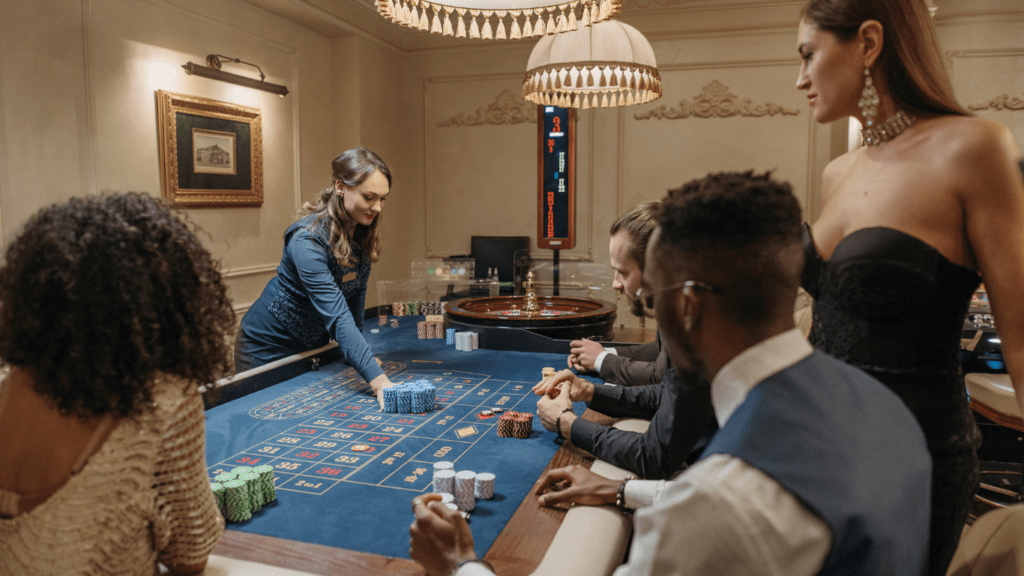Understanding Gambling Greed
Gambling greed often surfaces when the allure of winning overtakes reason. It’s a powerful motivator that can cloud judgment and lead to rash decisions. As I explore the depths of this phenomenon, I recognize that greed stems from a desire for more, often driven by the illusion of easy riches. This mindset can easily transform a pleasurable pastime into a relentless pursuit.
In identifying the signs of gambling greed, it’s clear that compulsive behaviors often follow. These behaviors include chasing losses, increasing bets to cover previous deficits, and the constant need for the thrill that gambling provides. By acknowledging these signs, I aim to remain vigilant and maintain a balanced approach.
To further understand gambling greed, its psychological components must be considered. Greed triggers the release of dopamine, creating a sense of euphoria, which reinforces the behavior. This chemical response fuels the cycle of greed, making it challenging to break free. By recognizing this, I strive to focus on mindful gambling and emphasize being aware of my emotional state during games.
By examining these aspects of gambling greed, I strive to devise strategies that allow me to enjoy gambling within responsible limits. These strategies are crucial in ensuring that the excitement of gambling does not become an overwhelming obsession.
The Psychology Behind Winning Big
Winning big in gambling triggers a range of psychological responses that can affect decision-making and self-control. Understanding these responses helps maintain a rational approach to gambling.
The Thrill of the Game
The thrill of gambling stems from the unpredictability and potential rewards. People feel excitement and anticipation as they engage in various games, such as poker and slot machines. This thrill isn’t just about winning money—it’s about the rush of adrenaline and the emotional high from uncertain outcomes. Recognizing the thrill’s impact can prevent overindulgence and help maintain balanced gambling habits.
The Illusion of Control
Gamblers sometimes believe they can influence outcomes through skill or strategy, leading to an illusion of control. This misconception arises from the false belief that personal input can sway chance-based games. The illusion serves as a powerful motivator, enticing people to continue gambling despite evidence of randomness. By acknowledging the illusion, individuals can make more informed decisions and reduce the risk of gambling addiction.
Strategies to Manage Gambling Greed

Balancing excitement and control in gambling isn’t easy. These strategies can help manage greed while enjoying the game responsibly.
Setting Limits
- I always establish clear boundaries before gambling.
- Limiting both time and money spent on gambling ensures I maintain balance and avoid impulsive decisions.
- Sticking to these limits, even when I’m winning, prevents the slippery slope of chasing losses or overindulging in euphoria.
- Using tools like self-exclusion programs or setting daily betting caps can enforce discipline and protect my financial wellbeing.
Practicing Self-awareness
- I make sure to monitor my emotions and thoughts while gambling.
- Recognizing when my judgment becomes clouded by excitement or stress allows me to pause and reassess my choices.
- Reflecting on past gambling experiences provides insights into triggers and patterns that drive greed.
- Engaging in mindful practices such as meditation or deep-breathing exercises helps enhance self-awareness and maintain a clear, focused mindset.
The Role of External Support
External support plays a crucial role in managing gambling habits and navigating the challenges posed by greed. When individuals seek assistance outside their personal coping mechanisms, they enhance their ability to maintain control over their gambling activities.
Counseling and Therapy
Professional counseling offers a structured environment for addressing gambling behaviors. Therapists provide valuable insights into the psychological patterns that fuel gambling greed, allowing individuals to understand the underlying triggers. Cognitive-behavioral therapy (CBT), for example, helps modify thought patterns, reducing the impulsivity that often accompanies gambling. Engaging in therapy sessions equips me with strategies to handle gambling impulses and reduce the risk of addiction.
Support Groups
Connecting with others facing similar challenges offers a sense of community and shared understanding. Support groups like Gamblers Anonymous provide a safe space for:
- discussing experiences
- sharing coping techniques
- gaining encouragement
The collective wisdom within these groups enriches my understanding of gambling behaviors, promoting sustainable habits. By actively participating in support groups, I draw from collective strength and build a network that reinforces my commitment to responsible gambling practices.

 Christopher Walkerashed, the founder of Wild Gamble Greed, is a trailblazer in the high-stakes gambling industry. With a passion for the excitement of big bets, he created a platform that caters to seasoned players, offering expert insights into high-stakes sports betting, poker, and slot machines with massive payouts. Walkerashed is equally committed to promoting responsible gambling, ensuring players have the tools to balance ambition with control. Through his innovative vision, Wild Gamble Greed has become a premier destination for high-rollers seeking to gamble smartly and responsibly.
Christopher Walkerashed, the founder of Wild Gamble Greed, is a trailblazer in the high-stakes gambling industry. With a passion for the excitement of big bets, he created a platform that caters to seasoned players, offering expert insights into high-stakes sports betting, poker, and slot machines with massive payouts. Walkerashed is equally committed to promoting responsible gambling, ensuring players have the tools to balance ambition with control. Through his innovative vision, Wild Gamble Greed has become a premier destination for high-rollers seeking to gamble smartly and responsibly.